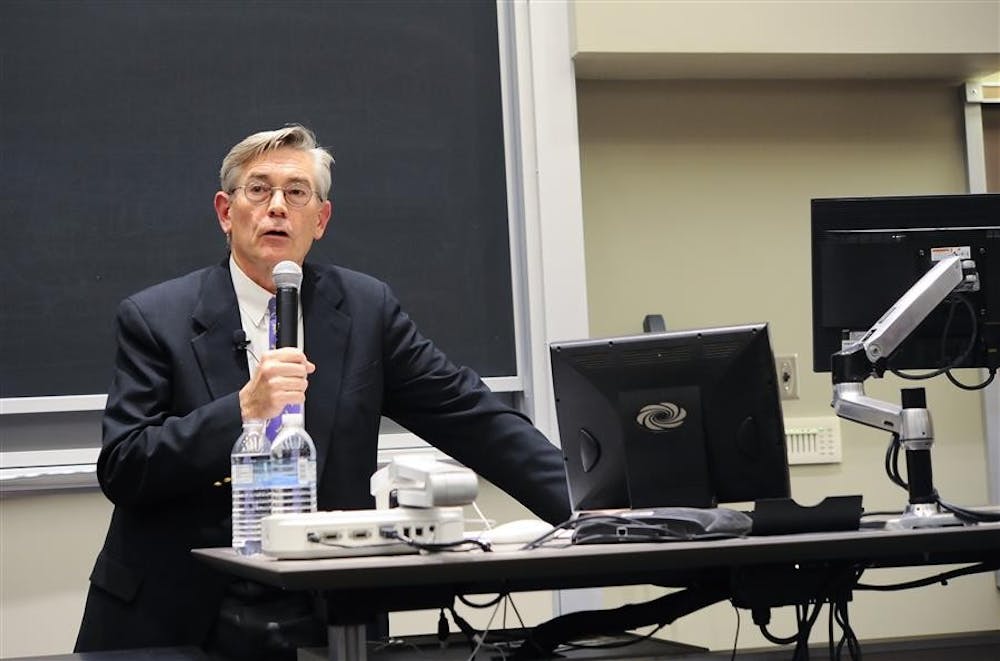Ignorance and fear have worsened the spread of global diseases.
Improved education might be the only way to fix it, New York Times reporter Donald McNeil Jr. said.
Dozens of IU students and community members spent their Wednesday evening learning about global health obstacles, sex and murders of albinos.
McNeil, a science and health reporter, gave his lecture “Sex, Albino Murders, Tightwad Superpowers, Drone Strikes and the Battle For Global Health” Wednesday.
McNeil specializes in plagues and pestilences, covering diseases such as AIDS, malaria and avian flu.
“I don’t write about wellness, I write about disease,” McNeil said. “Worms, germs and things that make you squirm.”
McNeil talked about wellness as a modern concept.
He has traveled to countries including India and South Africa, investigating their pharmaceutical companies and prevalent diseases.
He spoke of murders of albino people in foreign countries, specifically in Tanzania and South Africa.
These murders are primarily used for witchcraft, he said.
Many witchdoctors use severed albino parts in their practices.
“More than 70 albinos have been murdered in the last few years,” McNeil said.
These practices are used in fear of modern vaccines, he said.
“Lack of education, ignorance and fear have caused this,” he said.
In foreign countries such as Uganda, improper education has contributed to many anti-HIV/AIDS campaigns, preventing needed treatment, McNeil said.
In the U.S., there are 50,000 new infections of HIV/AIDS a year. McNeil said many infections are spread due to failure of treatment.
HIV/AIDS treatment can make recipients of the virus 96 percent less infectious, he said.
“Our response to AIDS is a failure,” McNeil said, “We don’t need a happy, fix-it solution, we need a new plan.”
McNeil emphasized the steps health professionals in foreign countries are taking toward improving health care, including using sterilized tools more frequently.
Despite improvements, world health problems still exist, McNeil said.
For example, different polio forms are spreading between countries.
“Globally, we are not nearly out of the woods yet,” McNeil said.
McNeil’s lecture was part of the IU Student Association’s Collegiate Readership Program.
The program provides free copies of The New York Times and USA Today at locations on campus including residence halls and the Indiana Memorial Union.
“These papers are a great resource for students to have in college,” said junior
Aparna Srinath, IUSA’s co-chief of outreach. “It allows the students to get a worldly perspective while they’re here at IU.”
Srinath said she is thankful IU students had the opportunity to meet a traveled journalist.
“This allows the students to get a prospective from a journalist that’s taking a global view of things,” Srinath said.
“Being in the U.S., students don’t usually get a perspective on global issues and aren’t able to hear from someone who’s reported on this.”
The New York Times selected and sent McNeil for the lecture, Srinath said.
“His experiences, travels and enhanced learning about global health is a topic that can appeal to a wide variety of students,” Srinath said.
McNeil said he has enjoyed his journalistic experiences and travels.
“The nice thing about journalism is that you learn while you work,” he said.
Writer analyzes health issues

Get stories like this in your inbox
Subscribe




